There is actually nothing within the class file itself that stores the name of the method parameter. If you look at section 4.3.3, you'll see the following definitions for MethodDescriptor:
A method descriptor represents the parameters that the method takes and the value that it returns:
MethodDescriptor:
( ParameterDescriptor* ) ReturnDescriptor
A parameter descriptor represents a parameter passed to a method:
ParameterDescriptor:
FieldType
A return descriptor represents the type of the value returned from a method. It is a series of characters generated by the grammar:
ReturnDescriptor:
FieldType
VoidDescriptor
VoidDescriptor:
V
The character V indicates that the method returns no value (its return type is void).
You can see this if you print out the bytecode for Person.class and PersonImpl.class using javap -c:
Compiled from "Person.java"
public interface Person {
public abstract void setName(java.lang.String);
public abstract void setAge(int);
}
Compiled from "PersonImpl.java"
public class PersonImpl implements Person {
public PersonImpl();
Code:
0: aload_0
1: invokespecial #1 // Method java/lang/Object."<init>":()V
4: return
public void setName(java.lang.String);
Code:
0: getstatic #2 // Field java/lang/System.out:Ljava/io/PrintStream;
3: new #3 // class java/lang/StringBuilder
6: dup
7: invokespecial #4 // Method java/lang/StringBuilder."<init>":()V
10: ldc #5 // String This is my name:
12: invokevirtual #6 // Method java/lang/StringBuilder.append:(Ljava/lang/String;)Ljava/lang/StringBuilder;
15: aload_1
16: invokevirtual #6 // Method java/lang/StringBuilder.append:(Ljava/lang/String;)Ljava/lang/StringBuilder;
19: invokevirtual #7 // Method java/lang/StringBuilder.toString:()Ljava/lang/String;
22: invokevirtual #8 // Method java/io/PrintStream.println:(Ljava/lang/String;)V
25: return
public void setAge(int);
Code:
0: getstatic #2 // Field java/lang/System.out:Ljava/io/PrintStream;
3: new #3 // class java/lang/StringBuilder
6: dup
7: invokespecial #4 // Method java/lang/StringBuilder."<init>":()V
10: ldc #9 // String This is my age:
12: invokevirtual #6 // Method java/lang/StringBuilder.append:(Ljava/lang/String;)Ljava/lang/StringBuilder;
15: iload_1
16: invokevirtual #10 // Method java/lang/StringBuilder.append:(I)Ljava/lang/StringBuilder;
19: invokevirtual #7 // Method java/lang/StringBuilder.toString:()Ljava/lang/String;
22: invokevirtual #8 // Method java/io/PrintStream.println:(Ljava/lang/String;)V
25: return
}
You can see that the signature for the method says nothing about the name of the parameter; only its type.
What I suspect is happening is that JD-Gui is probably using some sort of heuristic based on JavaBeans conventions to derive the name of the parameter. Since the name of the method is setName, it assumes that the name of the parameter is name. Try changing the name of the parameter to something other than name and see what JD-Gui prints out.
Debug information, like local variables, will show up if you compile using -g or -g:vars; it does not show up by default. These show up in the LocalVariableTable attribute. From section 4.7.13:
The LocalVariableTable attribute is an optional variable-length attribute in the attributes table of a Code attribute (§4.7.3). It may be used by debuggers to determine the value of a given local variable during the execution of a method.
Notice the optional part; this is why you don't see it by default. Now if you look at section 4.7.3 for the Code attribute:
The Code attribute is a variable-length attribute in the attributes table of a method_info structure (§4.6). A Code attribute contains the Java Virtual Machine instructions and auxiliary information for a method, including an instance initialization method or a class or interface initialization method (§2.9).
If the method is either native or abstract, its method_info structure must not have a Code attribute in its attributes table. Otherwise, its method_info structure must have exactly one Code attribute in its attributes table.
Since interface method-definitions are effectively abstract (unless you use default methods), you won't see a LocalVariableTable entry for them. I used the latest version of JD-Gui against PersonImpl.class that was not compiled with -g, and found that it did not display name and age. Instead it displayed paramString and paramInt just like you saw for Person.class. However, if you do compile it with the -g flag, you will see name and age.




